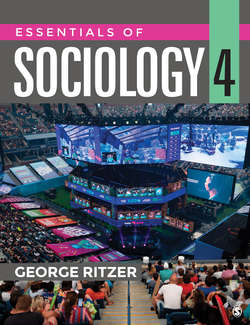Читать книгу Essentials of Sociology - George Ritzer - Страница 113
На сайте Литреса книга снята с продажи.
Identity Politics
ОглавлениеWhile some majority groups have come to oppose multiculturalism, various minority groups have grown impatient with the dominant culture’s limited view of multiculturalism and its unwillingness to accept the minority groups for who they are. Such minorities have asserted their right to retain their distinctive cultures and even their right not to assimilate, at least totally. In reaction, the majority group, especially whites in various parts of the world (including the United States), has reasserted themselves as an identity group (Mishra, 2018). Many minority groups have engaged in identity politics in using their power to strengthen the position of the cultural groups with which they identify (Appiah 2018). Identity politics has a long history; in recent decades, it has included the black power, feminist, and gay pride movements in many parts of the world. The goal of such movements has been the creation of a true multicultural society, one that accepts minorities for who they are. Identity politics has played out not only on the streets in the form of public protests and demonstrations but also in schools, especially in universities. In the latter, the central issue has been whether all students should be required to learn the “canon”—a common set of texts, sometimes referred to as the “great books”—a body of knowledge long regarded to be of central importance. For example, the works of Marx, Weber, and Durkheim are often thought to be the canonical texts in sociology. Minority cultures claim that the canon in sociology and many other fields reflects the interests and experiences of white middle- and upper-class males. They argue that alternative bodies of knowledge, such as those created by women, people of color, and the LGBTQ community, are at least as important. The result has been a proliferation of programs such as those devoted to black, Chicano, and feminist studies, where the focus is on those alternative texts and bodies of knowledge. However, such programs have been the subject of much controversy and political scrutiny.
